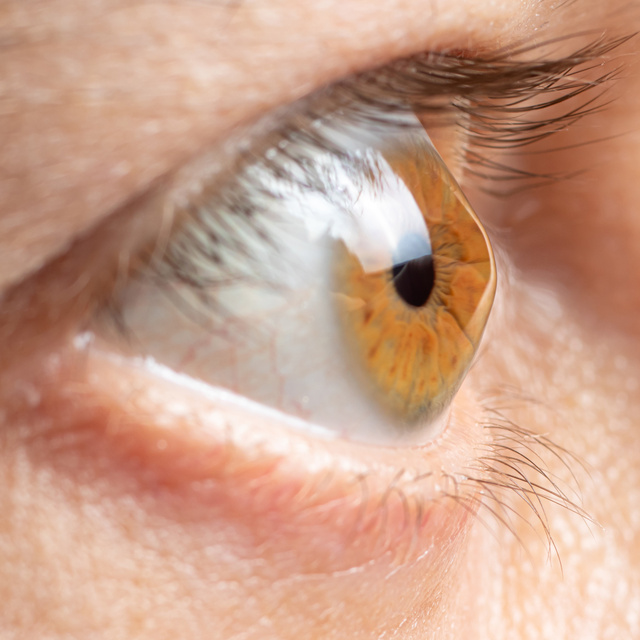
Advanced Keratoconus Treatment
Keratoconus is a progressive eye condition that can significantly impact your vision over time. If you've been diagnosed with this condition, you may have concerns about the future of your eyesight. Fortunately, a groundbreaking treatment combination can help — corneal crosslinking and scleral lenses.


Understanding Keratoconus: Symptoms and Causes
Keratoconus is a unique and challenging eye disorder. It's characterized by the thinning and bulging of the cornea, the eye's clear front surface. This corneal distortion causes vision problems, including blurry and distorted vision, increased light sensitivity, and difficulty wearing soft contact lenses or glasses. Over time, the progression of keratoconus can lead to severe vision impairment.
The Power of Corneal Crosslinking and Scleral Lenses
Corneal crosslinking is a minimally invasive procedure that can strengthen the cornea and halt the progression of keratoconus. Riboflavin eye drops are carefully applied to the cornea's surface, followed by controlled exposure to ultraviolet (UV) light. This combination of riboflavin and UV light strengthens the bonds between collagen fibers , which add strength and stability to the cornea.
In combination with corneal crosslinking, scleral lenses play a crucial role in improving vision for keratoconus patients. Scleral lenses are larger, specialized contact lenses that vault over the cornea, creating a smooth, moist reservoir of tears between the lens and the eye's surface. This provides clear vision and enhances comfort, making them an excellent option for individuals with keratoconus.
Corneal crosslinking and scleral lenses offer several advantages. Among others, this combination:
-
Improves Vision
Many patients experience improved vision after undergoing corneal crosslinking and using scleral lenses. The strengthening of the cornea combined with the customized fit of scleral lenses can lead to clearer and more stable eyesight. As a result, you may rely less on glasses or traditional contact lenses.
-
Is Minimally Invasive
The procedure itself is minimally invasive, typically performed in an outpatient setting. Most patients experience minimal discomfort during the process, and the recovery time is relatively short, allowing you to return to your daily activities promptly.
-
Shows Long-Lasting Results
The strengthening effect on the cornea can provide long-term benefits. By preserving your corneal integrity and utilizing scleral lenses, this combination can help maintain your vision for years, reducing the risk of further vision loss.
Scleral Lenses in West Plano

Meet our Eye Doctors

- Monday 9:00 am - 6:00 pm
- Tuesday 9:00 am - 6:00 pm
- Wednesday Closed
- Thursday 9:00 am - 6:00 pm
- Friday 8:00 am - 4:00 pm
- Saturday Closed
- Sunday Closed
- VSP
- Medicare
- United Healthcare
- Aetna
- Spectera
- Anthem
- EyeMed
- Anthem Blue Cross Blue Shield
- MetLife

Who Can Benefit from Corneal Crosslinking and Scleral Lenses?
Corneal crosslinking and scleral lenses are recommended for patients who have been diagnosed with keratoconus and have shown proven progression of their condition. We understand the unique challenges of keratoconus and are dedicated to helping you preserve your eye health and vision.
If you've been diagnosed with keratoconus or suspect you may have it, our team at Trinity EyeCare specializes in this innovative treatment combination and is committed to providing you with the best possible care. We understand the unique challenges of keratoconus and are dedicated to helping you preserve your eye health and vision.
Contact us today to schedule a consultation and learn more about how the combination of corneal crosslinking and scleral lenses can strengthen your vision, halt the progression of keratoconus, and preserve your eye health for years.
Scleral Lenses Articles
-
 Keratoconus and Scleral Lenses: Finding the Perfect Fit
Keratoconus and Scleral Lenses: Finding the Perfect Fit -
 Scleral Lenses for Sjogren’s Syndrome
Scleral Lenses for Sjogren’s Syndrome -
 Post Corneal Graft Scleral Lenses
Post Corneal Graft Scleral Lenses -
 Scleral Lenses: Your Solution for Dry Eye Relief
Scleral Lenses: Your Solution for Dry Eye Relief -
 Managing Post-LASIK Complications with Scleral Lenses
Managing Post-LASIK Complications with Scleral Lenses -
 Who is a Candidate for Scleral Contact Lenses
Who is a Candidate for Scleral Contact Lenses -
 Complete Guide to Scleral Lens Care
Complete Guide to Scleral Lens Care
